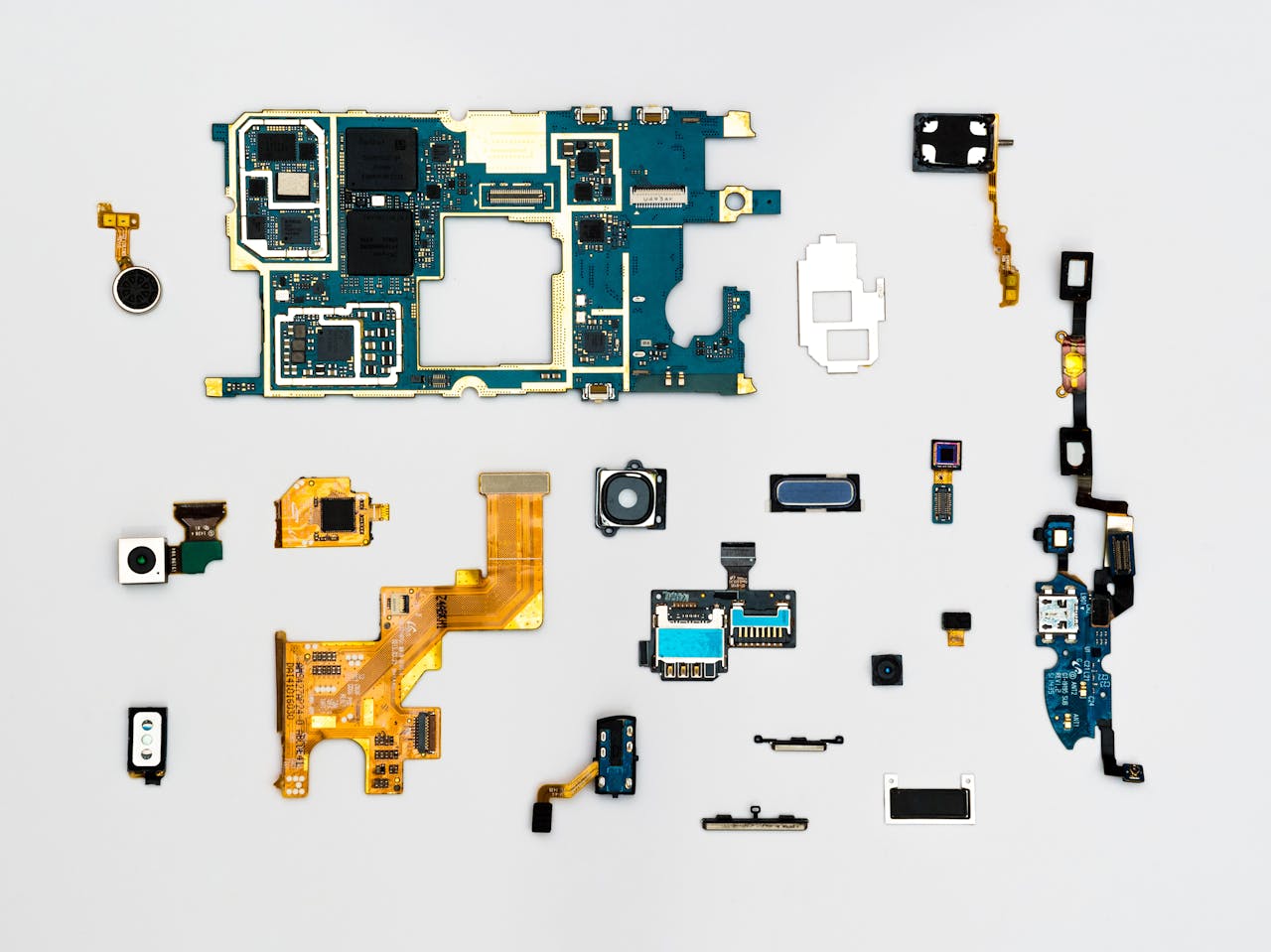Did you know that hardware failures account for 45% of data loss incidents in small businesses? This alarming statistic underscores the critical importance of regular hardware maintenance. Neglecting this essential aspect can lead to significant operational disruptions, financial losses, and compromised business efficiency.
What is Hardware Maintenance
Hardware maintenance involves the systematic upkeep of a company’s physical IT assets to ensure optimal performance and longevity. This process includes routine inspections, cleaning, updates, and repairs of components such as computers, servers, printers, and networking devices. By proactively managing these elements, businesses can prevent unexpected failures and maintain seamless operations.
At Dymer Solutions, we specialize in providing comprehensive hardware maintenance services tailored to your business needs. Our offerings include:
- Technical Support: Expert assistance for all IT needs.
- Hardware Installation: Professional setup for your systems.
- Network Management: Secure and reliable network services.
- Data Backup: Safeguarding your critical information.
Regular hardware maintenance is not just about preventing failures; it’s about enhancing overall business efficiency. By ensuring that all physical components of your IT infrastructure are in optimal condition, you can reduce downtime, improve productivity, and extend the lifespan of your equipment.
For more information on how Dymer Solutions can assist with your hardware maintenance needs, visit our Offerings page.
What Are the Benefits of Regular Hardware Maintenance
Enhanced Performance
Well-maintained hardware operates at peak efficiency, ensuring that your business activities are not slowed by technical bottlenecks. When systems are running smoothly, processing speeds improve, allowing teams to complete tasks faster and with greater accuracy. Downtime caused by hardware malfunctions is also significantly reduced, leading to uninterrupted workflows. For example, TechTarget highlights how proactive maintenance can decrease operational downtime by up to 50%.
Extended Lifespan
Just like regular servicing keeps a car running for years, routine maintenance can extend the life of your business hardware. Simple actions like cleaning vents or ensuring proper hardware cooling can delay wear and tear, postponing the need for costly replacements. Investing in maintenance is a cost-effective alternative to frequent upgrades or replacements, a practice championed by experts at PCWorld.
Cost Savings
Preventive maintenance is significantly less expensive than emergency repairs or system replacements. For instance, replacing a damaged server on short notice can disrupt operations and incur steep expenses. Regular checkups, however, help you identify potential problems early, saving your business money in the long run. As noted by ZDNet, businesses that adopt preventive strategies can save up to 30% on IT maintenance costs annually.
Improved Security
Outdated hardware and software often become entry points for cyber threats. Maintaining your IT infrastructure not only keeps your systems running efficiently but also fortifies your defenses against malware and unauthorized access. Businesses leveraging comprehensive maintenance programs, like those offered by Dymer Solutions, enjoy enhanced protection and peace of mind.
What Are the Key Components of Hardware Maintenance
Regular Cleaning
Dust and debris are silent killers of hardware efficiency. Over time, clogged vents and fans can lead to overheating, which damages critical components. A simple cleaning schedule, including the use of compressed air and anti-static brushes, can help prevent overheating issues. For detailed cleaning instructions, check out How-To Geek’s Guide.
Software Updates
Firmware and driver updates are integral to hardware functionality. Updates patch vulnerabilities, improve compatibility, and ensure devices operate securely and efficiently. Skipping these updates can lead to performance degradation and increased security risks. Consider scheduling automatic updates to reduce manual effort. Visit Microsoft Support for more on update best practices.
Hardware Inspections
Routine inspections help identify early signs of wear, such as loose cables or deteriorating components. This proactive approach minimizes the likelihood of sudden breakdowns. Partnering with an IT service provider like Dymer Solutions ensures expert evaluation and timely interventions.
Data Backup and Recovery Planning
Data loss due to hardware failure is a major risk for businesses. Implementing a robust data backup system safeguards against this, ensuring quick recovery in case of malfunctions. Cloud-based backups, in particular, offer scalable and secure solutions for businesses of all sizes. Visit our Data Backup Solutions page for more information.
How To Implement a Hardware Maintenance Plan
Assessment
The first step in creating an effective hardware maintenance plan is to conduct a thorough inventory of all hardware assets. This includes listing all computers, servers, networking devices, printers, and other physical components, alongside their specifications, purchase dates, and warranty details. Understanding the age and condition of each asset helps prioritize maintenance efforts and identify which equipment might require immediate attention or replacement.
Scheduling
Establishing a consistent maintenance schedule is critical for ensuring that tasks are completed on time. A well-organized plan might include:
- Daily tasks: Checking device functionality and ensuring systems are shut down correctly.
- Weekly tasks: Performing quick inspections for visible wear or damage.
- Monthly tasks: Running software updates and performing deeper cleaning.
- Annually: Conducting comprehensive inspections and replacing components as needed.
Creating and adhering to this schedule helps businesses stay ahead of potential issues and reduces the risk of unexpected failures.
Documentation
Maintaining detailed records of all maintenance activities is a best practice that allows businesses to track the performance and condition of their hardware over time. This includes documenting any issues identified, the actions taken to resolve them, and the outcomes of these interventions. Proper documentation provides valuable insights for future planning and ensures accountability within the team.
Professional Support
While some maintenance tasks can be handled internally, partnering with an IT service provider for specialized support can make a significant difference. Professionals have the expertise to diagnose complex issues, provide advanced repairs, and recommend upgrades tailored to your business needs. IT service providers like Dymer Solutions offer comprehensive hardware maintenance plans to keep your systems running smoothly.
Case Study: A Real-World Example
The Challenge: A mid-sized retail company faced frequent system downtimes due to aging hardware and inconsistent maintenance practices. This led to disruptions in their point-of-sale systems, resulting in revenue loss and frustrated customers.
The Solution: The company partnered with an IT service provider to implement a structured hardware maintenance plan. An initial inventory assessment identified critical areas of concern, such as outdated servers and clogged ventilation systems. The provider established a maintenance schedule, performed necessary repairs, and upgraded key components.
The Outcome: Within six months, the company experienced a 40% reduction in system downtimes. Employee productivity improved, and customer satisfaction increased due to faster and more reliable service. The business also saved 25% on IT expenses by avoiding costly emergency repairs.
Conclusion
Regular hardware maintenance is essential for optimizing performance, extending the lifespan of equipment, reducing costs, and enhancing security. By implementing key maintenance practices, such as regular cleaning, software updates, and professional inspections, businesses can prevent operational disruptions and ensure their systems run efficiently.
Evaluate your current hardware maintenance practices today. Is your equipment performing at its best? Are you prepared for potential failures? Partner with Dymer Solutions to develop a tailored hardware maintenance plan that supports your business goals. Visit Dymer Solutions to learn more and take the first step toward enhanced operational efficiency.

